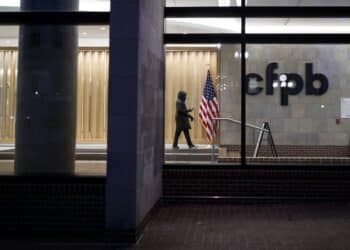Compliance Insider: Another Step Too Far

The proposed rule excludes from coverage, “credit extended for the sole and express purpose of financing a consumer’s initial purchase of a good when the credit is secured by the property being purchased, whether or not the security interest is perfected or recorded.” At first blush, this exclusion would seem to take auto financing out of the picture, as long as it was purchase-money financing (e.g., initial financing at the dealership, not a subsequent refinancing).
Not so fast.
In order for the exclusion to apply, the financing must be “for the sole and express purpose of financing a consumer’s initial purchase of a good.” In auto finance, the “good” the proposed rule refers to is the vehicle. But rarely does an auto finance transaction fund only the cost of the vehicle. The language of the exclusion suggests that it would not apply to a transaction where two vehicles were financed on the same contract. Nor would it apply if a single vehicle and any ancillary product were financed on a single contract. So arguably, any purchase-money vehicle financing with a “total cost of credit” in excess of 36% will fall under the proposed rule.
For purposes of the proposed rule, the “total cost of credit” is all normal Regulation Z finance charges plus:
“Any charge that the consumer incurs in connection with credit insurance before, at the same time as, or within 72 hours after the consumer receives the entire amount of funds that the consumer is entitled to receive under the loan, including any charges for application, sign-up, or participation in a credit insurance plan, and any charge for a debt cancellation or debt suspension agreement; [and] Any charge for a credit-related ancillary product, service, or membership sold before, at the same time as, or within 72 hours after the consumer receives the entire amount of funds that the consumer is entitled to receive under the loan and in connection with the credit transaction for closed-end credit or an account for open-end credit; . . .”
This last bit, the credit-related ancillary products, is referring to credit insurance and other debt- protection products that one can exclude from the Reg. Z finance charge calculation if properly disclosed. The CFPB is making it clear in the rule that these charges are to be included in the “total cost of credit” calculation for purposes of the 36% trigger, presumably based on consumer advocates’ views that these kinds of products are primarily profit generators that provide little value to consumers. Notably, there are no reliable facts available to support that contention, but nonetheless, including these charges in the “total cost of credit” for a subprime auto finance transaction could easily trip the trigger and make that transaction a covered loan.
There is some hope that in the end it won’t matter, because most auto finance transactions are dealer-originated, and the CFPB has no jurisdiction over most new car dealers. (It will still matter to buy-herepay- here dealers and many independent dealers.)
However, there is concern on the part of finance companies and banks that buy dealer paper that the CFPB may choose to enforce its new rule by re-characterizing the transactions as “covered loans” once they get into the hands of an entity over which it does have jurisdiction. This, of course, would make no sense, but the Second Circuit’s recent decision in the Madden v. Midland Funding LLC case (that a national bank’s rate authority does not transfer to subsequent purchasers, rendering loans that were legally made by the bank usurious in the hands of non-bank purchasers) is likely something an aggressive regulator would look to for support. We’ll just have to wait and see.
Auto finance companies and banks that purchase dealer paper should take a close look at the proposed rule, and determine whether a public comment is in order. It would be important to have a good record if a future challenge to the proposed rule comes down the pike.
Michael Benoit is a partner in the Washington, D.C. office of Hudson Cook LLP. He is a frequent speaker and writer on a variety of consumer credit topics. Michael can be reached at 202-327-9705 or mbenoit@hudco.com. Nothing in this article is legal advice and should not be taken as such. Please address all legal questions to your counsel.














